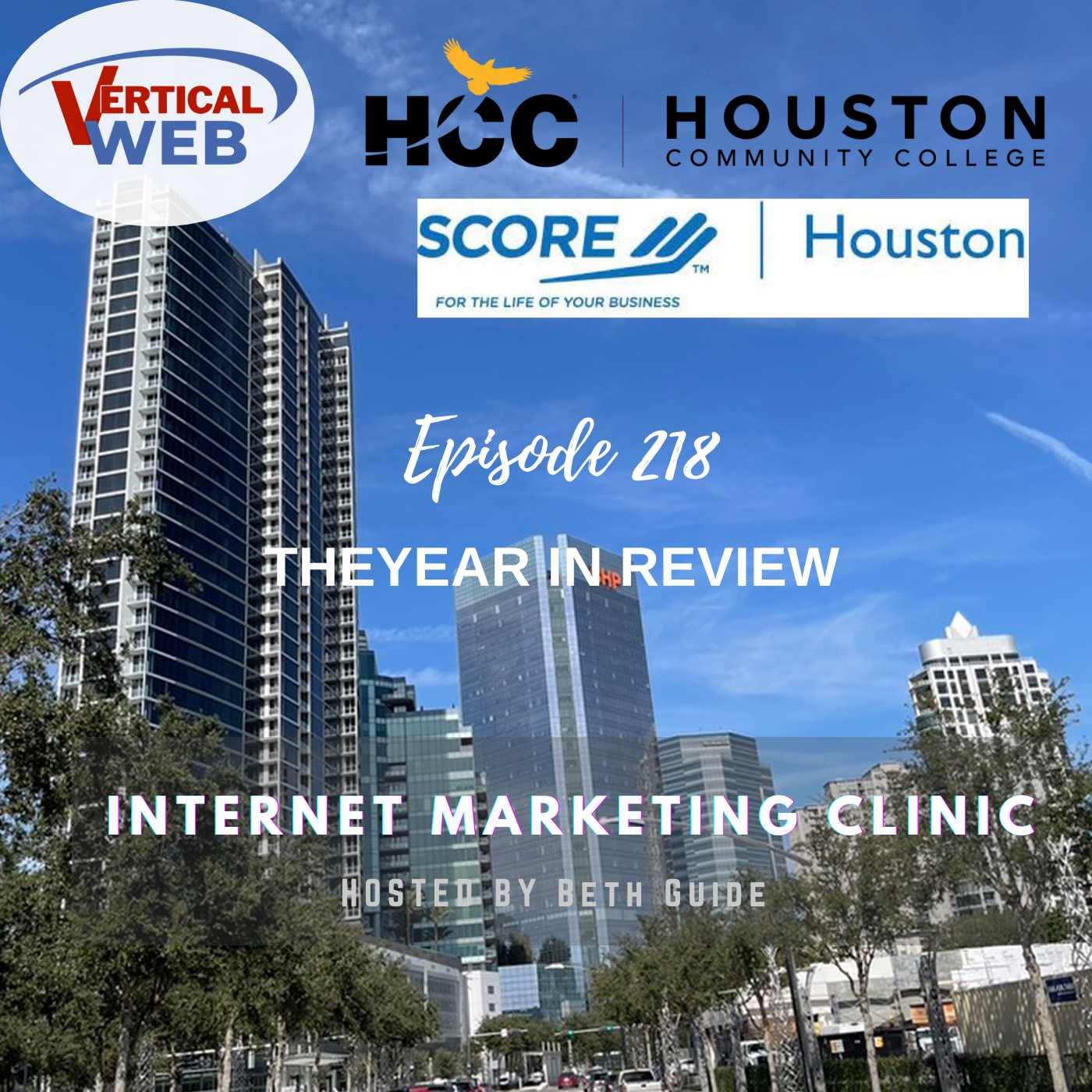Subscribe to Our Podcast Apple Podcasts | RSS
Looking back at 2022 - a year of major Google updates
Subscribe to Our Podcast Apple Podcasts | RSS
Another year, another slate of algorithm updates from the world’s leading search engine. Google making changes to its ranking algorithm is nothing new – it’s always going on, actually – but 2022 saw a couple of impactful changes that website owners should be aware of. Ideally, you will have already made some of the necessary adjustments, but if not, we’ve got a quick recap here you can use to get up to speed.
Technical Performance
While Google’s 2022 updates would eventually target content guidelines, the search engine started the year by making technical performance the focus. In a way, this was a continuation of Google’s Core Vitals update, which was pushed over during the summer of 2021.
Specifically, Google wants websites to run faster and more reliably than ever. It’s easy to understand why. A site’s user experience (UX) remains a primary consideration for Google, because search engines don’t exist to promote businesses. They exist to connect users (the people entering queries into Google search) with the best possible answer to their search.
A website’s UX describes how user-friendly the experience is on a particular page. If users are leaving the page before it loads or as soon as it loads, that lets Google know that the page is offering a poor UX. Search engines will always send traffic to a site with good UX metrics if given the opportunity. That means your site should also be optimized for UX.
A major part of UX is a page’s technical performance. Does it load important content quickly? Does it respond to user interaction quickly? Does it remain visually stable while loading? These are critical performance metrics roped into Google’s Core Vitals update.
The search engine is still raising the bar in terms of technical performance, so slow, unreliable sites are having added trouble in ranking well.
Stay away from “cookie cutter” website builders
If you’re building a website, Wix, Weebly, Squarespace, Shopify and others offer convenience. They don’t offer anything else, though, including technical performance or improved conversion rates.
In today’s world of digital marketing, nothing beats WordPress. With unmatched Google integration, unmatched versatility and unmatched support, WordPress websites are far easier to rank on Google and other search engines. If you’re building a new site, start with WordPress. If you have a website in a site-builder like Shopify, consider your options in moving the site to WordPress.
Content was always important, but helpful, expert content is now necessary
Content has always been a top ranking factor for Google and other search engines, but what exactly that content should look like has changed over the years. And this year, Google made one of its most meaningful content updates in its history.
Termed the helpful content update, Google is now prioritizing high quality, expert level content that provides value to the user. But what does value mean when it comes to an online blog?
Users go to Google to answer questions. Google returns the best possible answer to their questions. As a site owner, your job is to get Google to pick your answer first. That means you’ll need to generate content that offers the following:
Expertise –
Google places a lot of weight on expertise. It does not want to rank a non-expert highly on any of its SERPs, as this reflects poorly on its own ability to spot valuable information. This is especially true if the question has to do with an expert industry like medicine, legal or accounting.
Expert content answers a relevant query fully, from every angle possible. It may take 1,000, 2,000, 5,000 words to provide a complete answer, but Google prefers longer, more thorough content that short content that offers nothing new.
Authority –
Authority is closely related to expertise, obviously, but in an SEO content, authority refers to how well-researched your content is. If you cite respected authorities in answering a query, if you’re linked to by respected authorities or if you have a history of expert content, you’re more likely to be considered an authority on your chosen subject.
Clarity –
Helpful content is easy to read and understand. It should be free of typos, grammatical errors, euphemisms, extended analogies and the like. Be direct and clear with what you’re talking about.
All of your site’s content should meet the above guidelines, as fuzzy as they may seem. The point is this – lead with your area of expertise. Answer industry-specific questions in your blog the same way you would if you were having a conversation with a potential client.
<H3> AI content tools have emerged, but Google is heavily penalizing their usage <H3>
AI-based content generating tools are the next frontier in black hat content marketing tactics. These tools claim to spin up dozens of pages of content in a short time, using data fed into the content generator. Sounds like a shortcut to success, right?
More likely, it will run your website into a ditch. Google has not trouble spotting AI-generated content, even if the typical user on your site would never know the difference. And because Google considers AI content to be non-expert by definition, it will heavily penalize any site that it catches with AI content. Stay away.
Push your content out through multiple channels to pick up and drive traffic
Having trouble coming up with more and more content? Make every content idea pull double, triple or quadruple duty by pushing it out through additional channels. For example, with a single content idea, you could:
- Write a blog post or article on the subject
- Record a video of you talking about it
- Record a podcast discussing the subject
- Craft a social media post that links to the content
- Put together an image or graphic about the subject
The more ways you can present your content, the more traffic you’ll pick up through all those channels. Google can also associate this content together, so it will be more likely to present your content pages and Youtube videos on the same SERP if you place multiple types of content on your pages.
Here’s the take-home message for 2022: You need to be an expert in your field
We’re at the end of 2022, and in the end, this year was about the value of expertise. Google is no longer promoting websites that aren’t striving to be leaders in their industry. It wants the most knowledgeable, best communicators speaking for every industry. To achieve online success, then, the primary goal is to become a thought leader for your field, and to communicate this insight on your website.
- Class Today! Last Minute Sign-Ups Still Open. Join Us! - November 20, 2024
- One More Day Until Class! Sign Up Now! - November 19, 2024
- Sign Up Now For Next Week’s Class! - November 14, 2024


